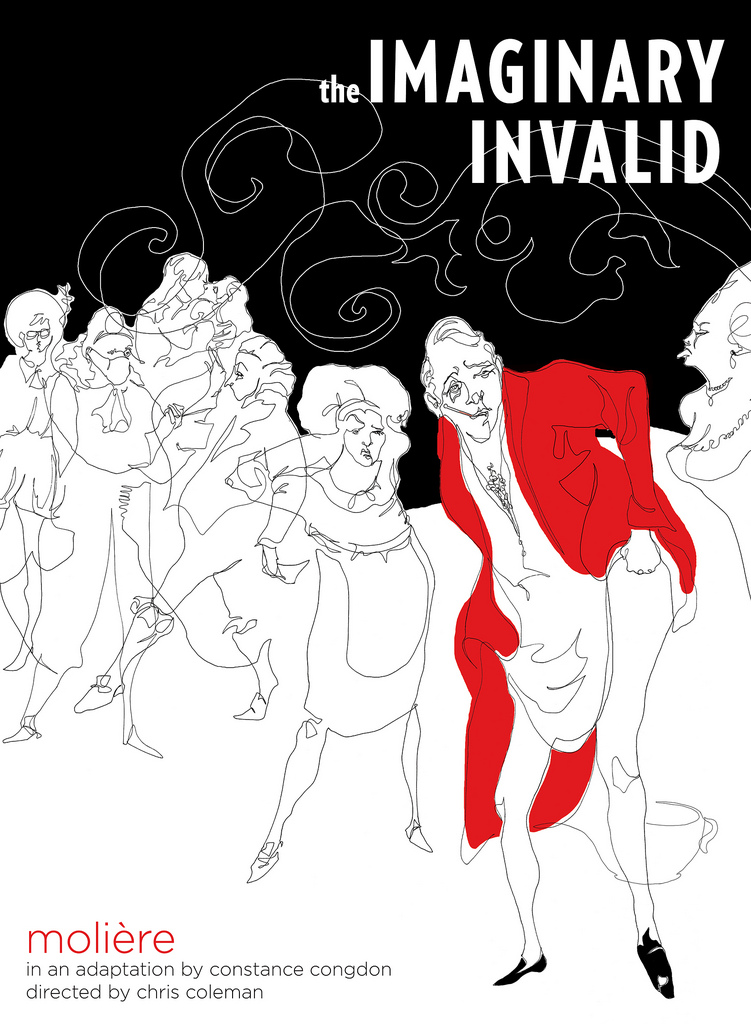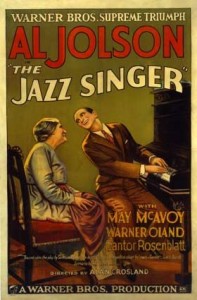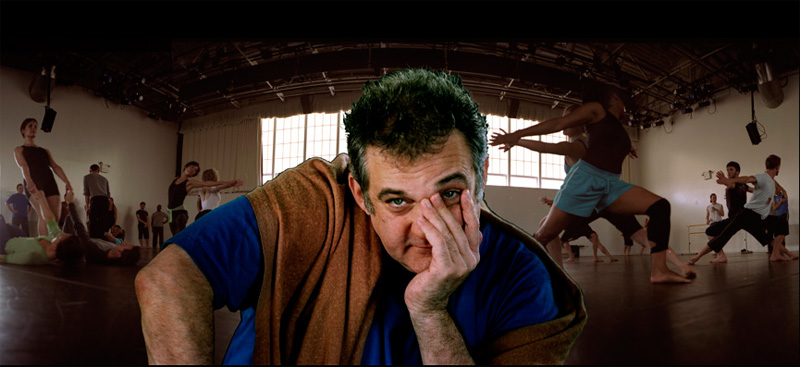By Bob Hicks
The big cultural flap out of Washington, now that people have mostly moved on from the Smithsonian chief’s craven caving-in to reactionary blowhards over David Wojnarowicz‘s ant-crawling video at the National Portrait Gallery, comes from the flip side of the channel: Rocco Landesman, boss of the National Endowment for the Arts, has been busy telling people that there’s too much theater in America for the demand, and it would be a good thing if a bunch of companies went out of business. (That theater companies are continuously going out of business without any help or hindrance from the NEA, and starting up again in new combinations, appears to have escaped his notice.)
 Locally, arts marketing whiz Trisha Mead sounded the alarm (she was even quoted in the New York Times) and Art Scatter’s brother in arms, Barry Johnson, has been carrying the conversation forward with several posts at Arts Dispatch. Mr. Scatter has even sprinkled a couple of comments into his threads.
Locally, arts marketing whiz Trisha Mead sounded the alarm (she was even quoted in the New York Times) and Art Scatter’s brother in arms, Barry Johnson, has been carrying the conversation forward with several posts at Arts Dispatch. Mr. Scatter has even sprinkled a couple of comments into his threads.
Barry’s worked up a fine lather, and for good reason: with friends like this, etcetera etcetera etcetera. Keep an eye on Arts Dispatch, because we have a feeling a lot more is going to be pouring out on this subject, and in Portland, AD has become Information Central on this topic.
Here at Art Scatter, we noted a year and a half ago when Congress confirmed Landesman for the top arts job that things were bound to get stirred up.

 And on the second morning he got up, made coffee, and wrote his review, which was subsequently published (the review, not the coffee) in The Oregonian. And the review praised some and quibbled some, and was not, in the terminology of the great god Variety, boffo.
And on the second morning he got up, made coffee, and wrote his review, which was subsequently published (the review, not the coffee) in The Oregonian. And the review praised some and quibbled some, and was not, in the terminology of the great god Variety, boffo.
 The mythology of the festival is that actor/director/artistic leader Angus Bowmer was the founding visionary, and he was. It was Bowmer who got things going in 1935, and when I began to go to the festival in the late 1960s and 1970s he was still around, still a quiet eminence, still a prominent spirit around the place.
The mythology of the festival is that actor/director/artistic leader Angus Bowmer was the founding visionary, and he was. It was Bowmer who got things going in 1935, and when I began to go to the festival in the late 1960s and 1970s he was still around, still a quiet eminence, still a prominent spirit around the place.
 Pepys had notoriously little patience for Shakespeare and his fripperies. What might he have thought, then, of Constance Congdon’s adaptation of Moliere’s
Pepys had notoriously little patience for Shakespeare and his fripperies. What might he have thought, then, of Constance Congdon’s adaptation of Moliere’s 
 Beauty fades, of course, or rather, it changes. Now, at 49, McGovern is still beautiful, but in a fully mature, more experienced, less unnerving way — which, from some vantages, makes her even more beautiful: It’s a beauty anchored by reality.
Beauty fades, of course, or rather, it changes. Now, at 49, McGovern is still beautiful, but in a fully mature, more experienced, less unnerving way — which, from some vantages, makes her even more beautiful: It’s a beauty anchored by reality.
 Soph is primarily a celebration of Tucker’s bawdy wit and rollicking style; Westerwelle isn’t looking to uncover any demons or wag her finger at the occasional ruthlessness that Tucker employed in pursuit of her career. But to Westerwelle’s credit, and to the credit of director Don Horn, who had a big hand in reshaping the script, neither does she shy from a few uncomfortable facts, such as Tucker’s vaudeville beginnings performing “
Soph is primarily a celebration of Tucker’s bawdy wit and rollicking style; Westerwelle isn’t looking to uncover any demons or wag her finger at the occasional ruthlessness that Tucker employed in pursuit of her career. But to Westerwelle’s credit, and to the credit of director Don Horn, who had a big hand in reshaping the script, neither does she shy from a few uncomfortable facts, such as Tucker’s vaudeville beginnings performing “ “If I can’t sell it gonna keep sittin’ on it, never gonna give it away,” the hard-bitten narrator of the bawdy blues tune Keep on Truckin’ declares. Her hardcore-capitalist sentiment is definitely not the motto at Art Scatter, where we tend to write what we write just because it sends little shivers up and down our spines. Still, we have an abiding fondness for those stalwarts of the heritage media who help us keep the spring in our mattress by paying cash on the barrel head for written contributions. O admirable concept! Here are a few recent pieces wherein we’ve made the noble trade of play for pay. We thank the editors of The Oregonian for assigning these exercises in fundamental free trade, and the publisher for his largesse:
“If I can’t sell it gonna keep sittin’ on it, never gonna give it away,” the hard-bitten narrator of the bawdy blues tune Keep on Truckin’ declares. Her hardcore-capitalist sentiment is definitely not the motto at Art Scatter, where we tend to write what we write just because it sends little shivers up and down our spines. Still, we have an abiding fondness for those stalwarts of the heritage media who help us keep the spring in our mattress by paying cash on the barrel head for written contributions. O admirable concept! Here are a few recent pieces wherein we’ve made the noble trade of play for pay. We thank the editors of The Oregonian for assigning these exercises in fundamental free trade, and the publisher for his largesse:
 You still occasionally hear people refer to it as Morris’s winking bad-boy spoof of the ubiquitous holiday story ballet, but people who think that about it (a) aren’t paying a lot of attention to the dance itself, and (b) apparently haven’t read the
You still occasionally hear people refer to it as Morris’s winking bad-boy spoof of the ubiquitous holiday story ballet, but people who think that about it (a) aren’t paying a lot of attention to the dance itself, and (b) apparently haven’t read the